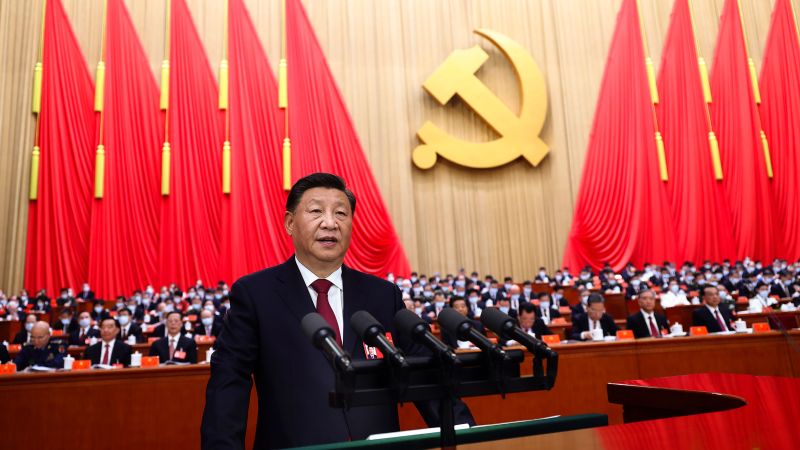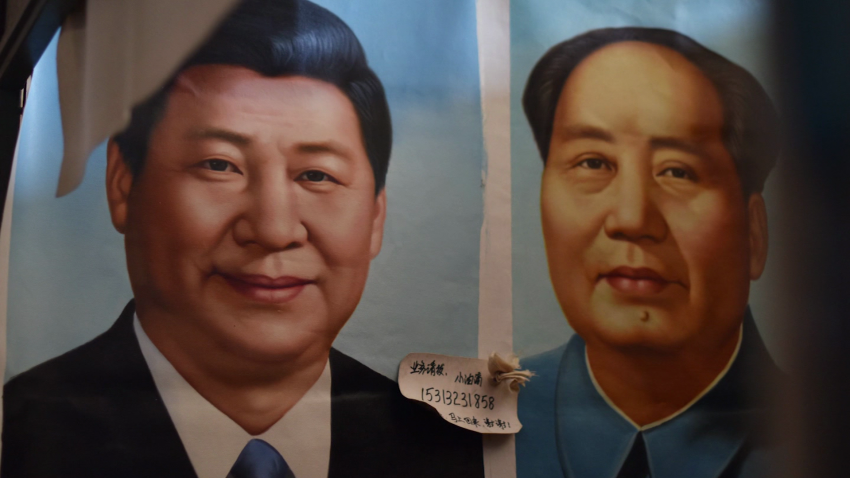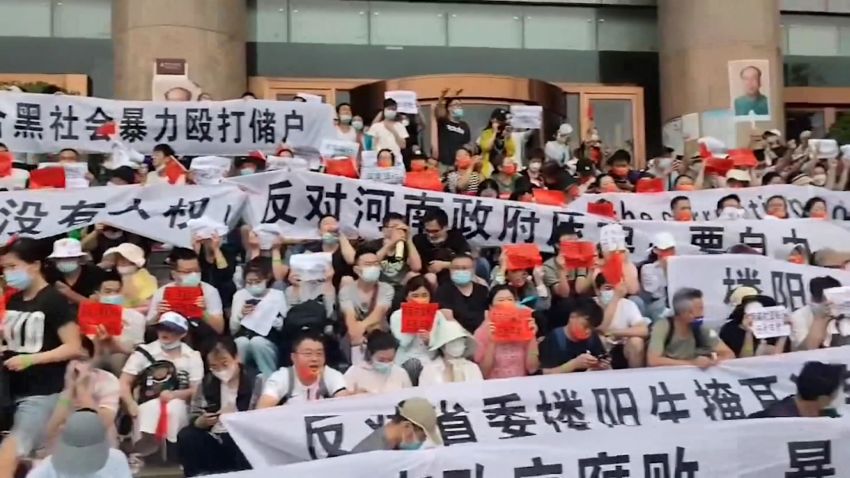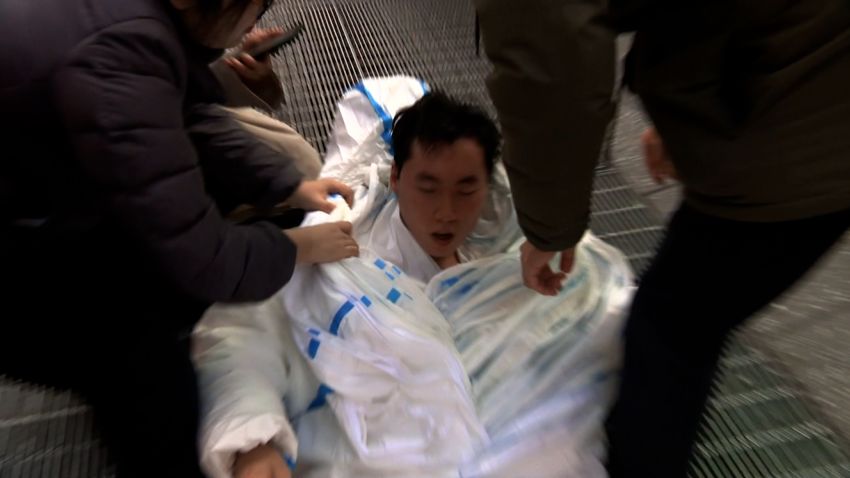
Hong Kong
CNN
—
China’s economy is faltering. Unemployment is skyrocketing. Endless Covid lockdowns are wreaking havoc on businesses and people’s lives. The property sector is in crisis. Ties between Beijing and major global powers are under strain.
The list of problems faced by the world’s second-largest economy goes on – and many of those long-term challenges have only worsened under a decade of Xi Jinping’s rule. Yet the Chinese leader’s grip on power is unwavering.
In the past decade, Xi has consolidated control to an extent unseen since the era of Communist China’s strongman founder, Mao Zedong. He’s the head of the Chinese Communist Party, the state, the armed forces, and so many committees that he’s been dubbed “chairman of everything.” And now, he is poised to step into an unprecedented third term in power, with the potential to rule for life.
But absolute power can often mean absolute responsibility, and as problems mount, analysts warn Xi will have less room to avoid blame.
“I think the worst enemy of Xi Jinping’s longevity in ruling China is Xi Jinping himself,” said Steve Tsang, director of the SOAS China Institute in London. “It is when he makes a huge policy mistake that causes havoc in China that could potentially start the process of unraveling Xi Jinping’s hold to power.”
Mao’s rule from 1949 until 1976 was marked by rash policy decisions that led to tens of millions of deaths and destroyed the economy. After those decades of turmoil, the Communist Party developed a system of collective leadership designed to prevent the rise of another dictator who could make arbitrary and dangerous decisions.
China’s next leader, Deng Xiaoping, set an unwritten rule and precedent that the Communist Party’s General Secretary – the role from which China’s leader derives true power – would step down after two terms.

From Mao to Xi: A history of China’s leadership
When Xi assumed power in 2012, China’s economy was booming as it integrated more closely with the rest of the world. Just four years before, China had stunned the world with the extravagant Beijing Summer Olympics. But to Xi, the party was in a state of crisis: overrun by corruption, infighting, and inefficiencies.
Xi’s solution was to return to dictatorial and personalistic rule. He purged political enemies in a sweeping anti-corruption campaign, silenced internal dissent, abolished presidential term limits and enshrined “Xi Jinping Thought” into the party’s constitution.
According to analysts, many dictatorships fall into a pattern of abuse of power and poor decision-making when a lack of critical advice reaches the leader. They point to Vladimir Putin’s increasingly costly war against Ukraine as a concern that Xi’s similarly unquestionable power to the Russian President could one day lead to equally disastrous consequences.
Putin and Xi “suffer from the same strongman-syndrome problem, which is that they turned their policy advice circles into echo chambers, so people are no longer able to speak their mind freely,” Tsang said. “We are seeing big mistakes being made because that internal policy debate has been reduced or indeed eliminated in terms of its scope.”
In recent history, no country has modernized as rapidly as China. The Communist Party claims its leadership helped lift hundreds of millions out of poverty, turning backwater villages into stunning megacities. But that growth miracle has slowed. And many longstanding challenges in China’s economy have only been exacerbated by Xi’s policies.
Xi has made it his mission to strengthen the party and its control over business and society. He unleashed a crackdown on the once-vibrant private sector that’s led to mass layoffs. Beijing claims the tougher regulations restrict overly powerful corporations and protect consumers, but the measures have suffocated private businesses, sending chills through the economy and sparking fears about future innovation.

China’s once vibrant private sector suffocating under Xi’s crackdown
Beijing started clamping down on easy credit for property firms in 2020, which led to cash crunches and defaults for many developers, including giant conglomerate Evergrande. Housing projects have stalled and desperate homebuyers across the country are refusing to pay mortgages on unfinished homes. Disruptions in the property sector have an outsized impact on China’s broader economy, as it accounts for as much as 30% of the country’s GDP.
But during Xi’s leadership, nothing has rocked China’s economy and society as much as zero-Covid. In year three of the pandemic, China has clung to the harsh policy, which relies on mass testing, extensive quarantines and snap lockdowns to stamp out infections at all costs, even as the rest of the world has learned to live with the virus.
The country continues to lock down entire cities over a handful of infections, while sending all positive cases and close contacts to government quarantine facilities. Lining up for Covid tests and scanning a tracking health code to enter any public space have become normalized. Beijing argues the policy has prevented China from spiraling into a health care disaster like the rest of the world, but zero-Covid is wielded at enormous and growing costs.

Artist wears 27 hazmat suits to protest China’s policies
Constant lockdowns have dramatically shrunk the pace of growth in China’s economy. Record youth unemployment has reached nearly 20%. Pocketbooks are shrinking. Heavily indebted local governments are forced to spend on mass Covid testing. Experts say resources would be better spent on increasing vaccination rates rather than building costly testing sites and quarantine facilities. China has still not approved any foreign mRNA vaccines proven to be more effective against the highly contagious Omicron variant than the inactivated vaccines used in China.
At the start of the pandemic, Beijing censored – and in some cases punished – doctors, experts, and citizen journalists who tried to warn of a deadly in virus in Wuhan.
Nearly three years on, as most international experts advise China to find a way to live with the virus, Beijing has doubled down. Earlier this year, Shanghai – a metropolis with a population more than three times that of New York City – was locked down for two months. People struggled to get enough food and basic necessities. Desperate residents broke out of home confinement and clashed with enforcement workers in rare street protests. Many patients were denied life-saving health care.
When the World Health Organization criticized the zero-Covid policy as “not sustainable,” China censored the statement on social media.
Susan Shirk, director of the 21st Century China Center and author of “Overreach,” a book on Xi’s leadership, says China’s leaders “compete with one another to prove how loyal they are to him because Xi promotes loyalists, not the most competent people.” That leads to subordinates going over the top in executing policies to try to please Xi, she said.
Shirk said this has played out with zero-Covid, as Xi has directly tied his leadership to the strategy, so local officials have zealously followed it to show loyalty to the leader and protect their careers.
“A lot of the pain in China’s economy has been self-inflicted by China’s leader,” Shirk said.
“So what this suggests, and this is a pretty disturbing idea, is that the Chinese Communist Party no longer brands itself as a developmental party, putting economic development as its primary objective. But instead, it’s Xi Jinping’s hold on power.”
